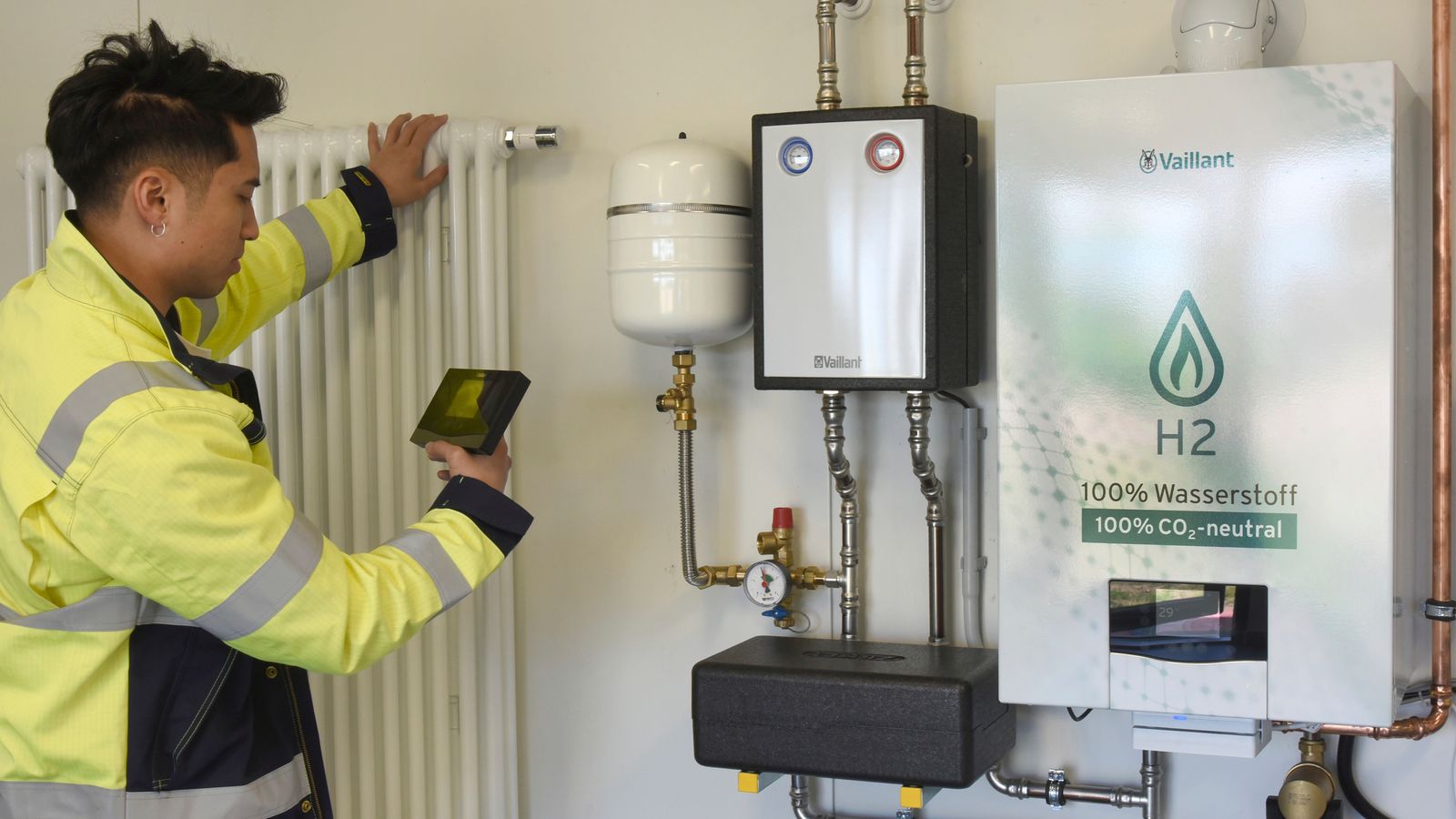A government taskforce intended to help people save energy and lower their bills has been disbanded after just six months.
The Energy Efficiency Taskforce was set up by the chancellor, Jeremy Hunt, in March to boost uptake of insulation and boiler upgrades in homes and commercial buildings.
It included Sir John Armitt, chair of the National Infrastructure Commission, along with bosses of banks, housing developers and behavioural experts – aiming to drive a 15 per cent reduction in energy usage by 2030.
The group had four meetings but were yet to make any formal recommendations. Energy efficiency minister Lord Callanan wrote to them yesterday to say their work would be incorporated into the work of the Department for Energy Security and Net Zero.
Read more: Rishi Sunak considering banning cigarettes for next generation
Jess Ralston, an energy analyst at non-profit group the Energy and Climate Intelligence Unit, told Sky News: “This appears to be yet another u-turn that could lead to higher bills just like the prime minister’s decision last week to roll back landlord insulation standards that could leave renters paying an additional £8bn on energy bills.”
One figure familiar with the taskforce discussions blamed the Treasury for not being willing to consider radical measures to incentivise families and businesses to take up the measures. One idea suggested was stamp duty reform.
The person said: “The Treasury spent £40bn last winter on energy support payments but wouldn’t spend £1-2bn on energy efficiency incentives which would save people money on their bills. It’s short-sighted”.
A Treasury source rejected this, and said: “Our commitment to energy efficiency has not changed one iota”
They added the decision to close the taskforce had been taken by the Department for Energy and Net Zero, created in February this year.
The taskforce was chaired by Lord Callanan and the former NatWest Group chief executive Alison Rose who resigned from the bank in July in a row over the closure of Nigel Farage’s account. It was intended to stimulate private sector investment and identify barriers in the market.
PM overhauls climate policies
A spokesperson for the department confirmed the taskforce was being disbanded and said: “We would like to thank the Energy Efficiency Taskforce for its work in supporting our ambition to reduce total UK energy demand by 15% from 2021 levels by 2030.
“We have invested £6.6bn in energy efficiency upgrades this Parliament and will continue to support families in making their homes more efficient, helping them to cut bills while also achieving net zero in a pragmatic, proportionate and realistic way.”
It comes after the prime minister made a speech this week rowing back on parts of the green agenda pursued by his predecessors – with targets relaxed for phasing out petrol and diesel cars, upgrading boilers and for landlords to make their properties energy efficient.
The oldest housing stock in Europe
Insulating homes is key to meeting the UK’s net zero target in 2050 – which remains in place. The UK has the oldest housing stock in Europe with millions of draughty, poorly insulated homes.
It had been estimated that 6 million homes would need to be insulated by 2030 to reach the government’s target of reducing energy usage by 15%.
Ed Miliband MP, Labour’s Shadow Energy Security and Net Zero Secretary, criticised the move, saying: “Every family is paying the price in higher energy bills due to thirteen years of Tory failure on insulating homes.
Click to subscribe to ClimateCast with Tom Heap wherever you get your podcasts
“After Rishi Sunak’s track record as chancellor with the disastrous Green Homes Grant, this is another shortsighted decision that will cost families money.”
Energy efficiency in England’s homes has increased since 2010, when just 14% were in the highest efficiency bands A to C. By 2020, it was 46%, according to the English Housing Survey. For homes that were improved to a Band C level, the annual energy saving was £282 per year.

